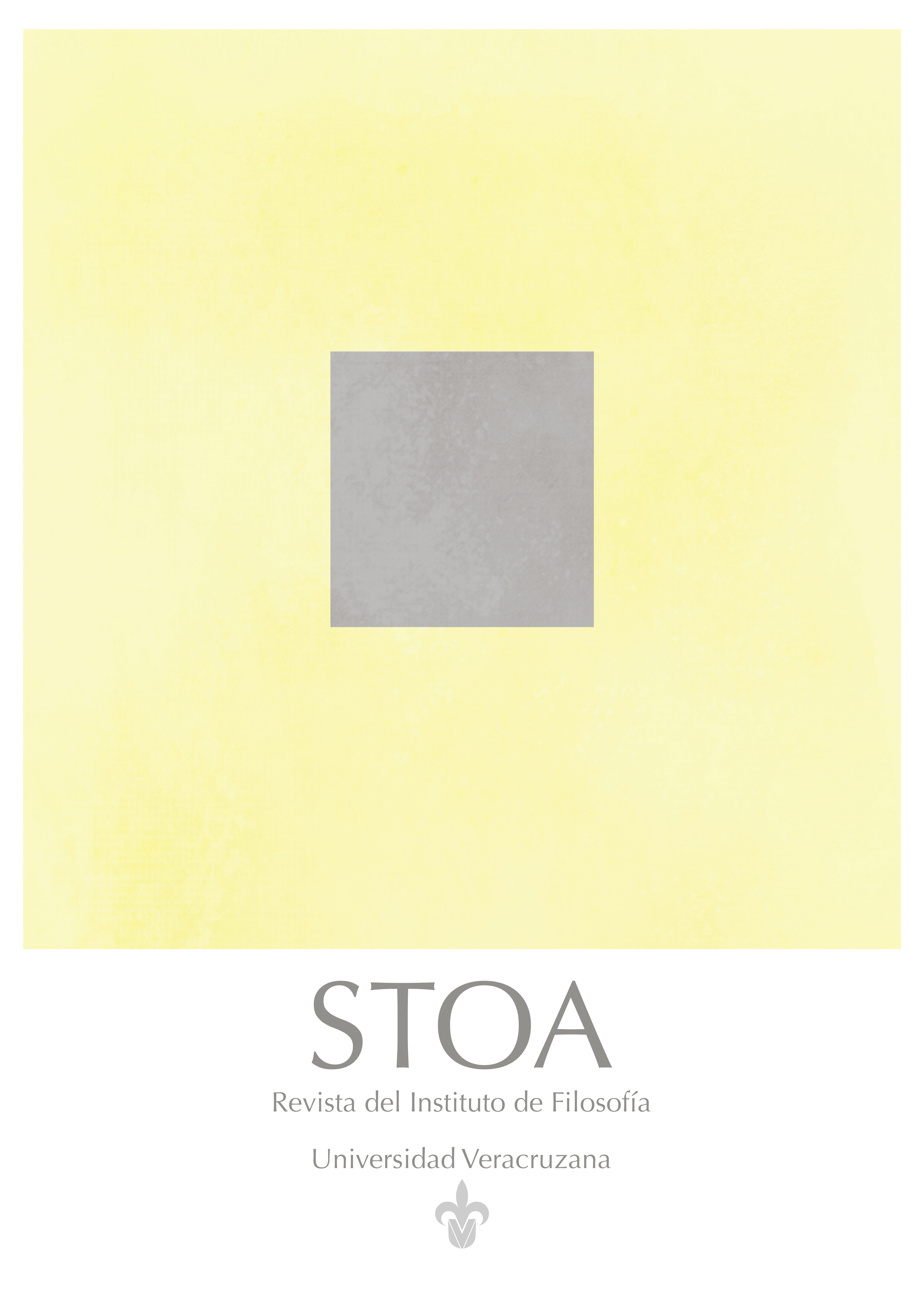Abstract
Este texto tiene como propósito presentar algunas reflexiones de corte gnoseológico que examinan la relación entre filosofía y ciencias políticas desde el punto de vista del materialismo filosófico. Se sostiene la tesis de que la potencia disruptiva de la filosofía crítica de Gustavo Bueno puede servir de base para reformular una nueva teoría general de las ciencias políticas. Para ello cuestiona del estatuto gnoseológico de las ciencias políticas, sitúa las cuestiones esenciales del pensamiento político contemporáneo, y finalmente plantea algunas consideraciones sobre el oficio del profesional de las ciencias políticas, que invitan a filosofar y decantar una verdadera filosofía para el presente en marcha.
STOA is a biannual publication edited by the Institute of Philosophy of the Universidad Veracruzana, Tuxpan, No. 29, Frac. Veracruz, C.P. 91020, Xalapa, Ver., Tel. 8154285, http://www.uv.mx/filosofia. Responsible editor: Jesús Turiso Sebastián. Exclusive Use Rights Reservation No. 04-2008-121012511200-203, granted by the Copyright Reservation Directorate of the National Institute of Copyright of the Secretariat of Public Education, ISSN: 2007-1868. Responsible for the last modification of this issue: Jesús Turiso Sebastián, Tuxpan, No. 29, Frac. Veracruz, C.P. 91020, date of last modification August 5, 2011. Distribution and digital support by the Academic Software Development Department of the Universidad Veracruzana.
The opinions expressed by the authors do not necessarily reflect the position of the editor of the publication. Reproduction by any means of the texts published in this journal may be done as long as the source is cited, including the name of the author, the name and number of the journal, and its electronic address. For more information write to revistastoa@uv.mx.
Revista Stoa is a completely free publication, with no cost for processing or receiving articles and free access.
This work is under a Creative Commons Attribution-NonCommercial-ShareAlike 4.0 International license.


